The new era of cyber threats
With AI-powered attacks and state-backed groups, security teams face face a new wave of sophisticated threats
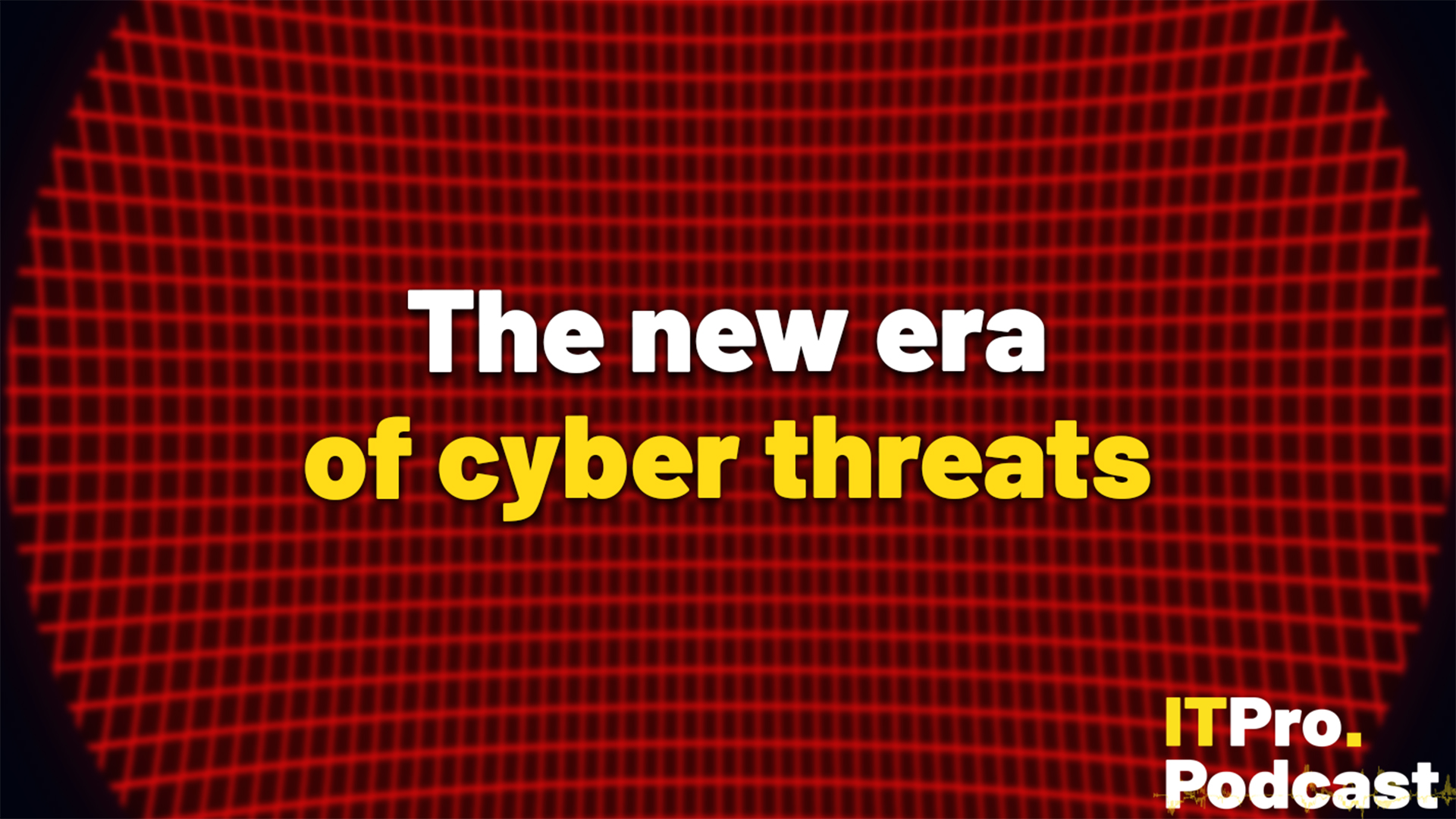

The cybersecurity landscape gets more complicated every year, with emerging technologies such as AI and geopolitical tension bringing extra chaos to any CISO’s desk.
Though automated defense systems are a welcome feather in cap for any company, it’s not just the good guys who have access to the latest tools. Off-the-shelf frameworks to launch attacks are becoming more common and businesses can’t rely on any single service to be a silver bullet.
What are the individual forces at play here? And how can security teams keep up?
In this episode, Rory speaks with Kevin Mandia, founder and former CEO at Mandiant and current board member at cybersecurity firm Expel, and Dave ‘Merk’ Merkel, co-founder and CEO at Expel, to learn more about the current global cybersecurity landscape and what the future holds for security teams.
Highlights
“There was a time where zero days were in the purview of modern nations. That's kind of who used them. And that's totally changed, now it's probably 50/50. You make so much money now on the financial side that you can afford to pay people to find the exploits. With the growing complexity of software, and software that depends on software that depends on software that depends on software and the shift change with AI coming, the vuln discovery capabilities that may be present in some AI components, the criminal element is operating at a nation state level, almost.”
RELATED WHITEPAPER

“Look, I'll always be a proponent for adopting effective multi factor. And if you can adopt, not quite multi factor, but things like passkeys, it is better than passwords, that'd be great. I am still really skeptical face that there's any panacea there, I think you have to kind of keep up with the time so you completely lose ground.”
“Don't expect miracles, because just as you figure those things out, if you get them really humming and scaling, you're now defending in a certain way, the attacker is going to watch you, and then they're going to adapt their their approach to try to figure out how to take away some of your advantage. And so you have that kind of two steps forward, one one step back problem, because the attacker is not static.”
Get the ITPro daily newsletter
Sign up today and you will receive a free copy of our Future Focus 2025 report - the leading guidance on AI, cybersecurity and other IT challenges as per 700+ senior executives
Footnotes
- State-sponsored cyber attacks: The new frontier
- The new ransomware groups worrying security researchers in 2025
- Stopping cyber attackers from targeting the weakest links in security
- Stealthy malware: The threats hiding in plain sight
- Why attacks against critical national infrastructure (CNI) are such a threat – and how governments are responding
- Why vendor breaches still haunt enterprise IT leaders
- London council claims it faces 20,000 cyber attacks per day
- I love magic links – why aren’t more services using them?
- How to create a secure password policy
- Majority of firms using generative AI experience related security incidents – even as it empowers security teams
Subscribe
- Subscribe to The ITPro Podcast on Apple Podcasts
- Subscribe to The ITPro Podcast on Spotify
- Subscribe to the ITPro newsletter
- Subscribe to the ITPro Podcast on YouTube
- Join us on LinkedIn

Rory Bathgate is Features and Multimedia Editor at ITPro, overseeing all in-depth content and case studies. He can also be found co-hosting the ITPro Podcast with Jane McCallion, swapping a keyboard for a microphone to discuss the latest learnings with thought leaders from across the tech sector.
In his free time, Rory enjoys photography, video editing, and good science fiction. After graduating from the University of Kent with a BA in English and American Literature, Rory undertook an MA in Eighteenth-Century Studies at King’s College London. He joined ITPro in 2022 as a graduate, following four years in student journalism. You can contact Rory at rory.bathgate@futurenet.com or on LinkedIn.
-
 Cleo attack victim list grows as Hertz confirms customer data stolen
Cleo attack victim list grows as Hertz confirms customer data stolenNews Hertz has confirmed it suffered a data breach as a result of the Cleo zero-day vulnerability in late 2024, with the car rental giant warning that customer data was stolen.
By Ross Kelly
-
 Lateral moves in tech: Why leaders should support employee mobility
Lateral moves in tech: Why leaders should support employee mobilityIn-depth Encouraging staff to switch roles can have long-term benefits for skills in the tech sector
By Keri Allan
-
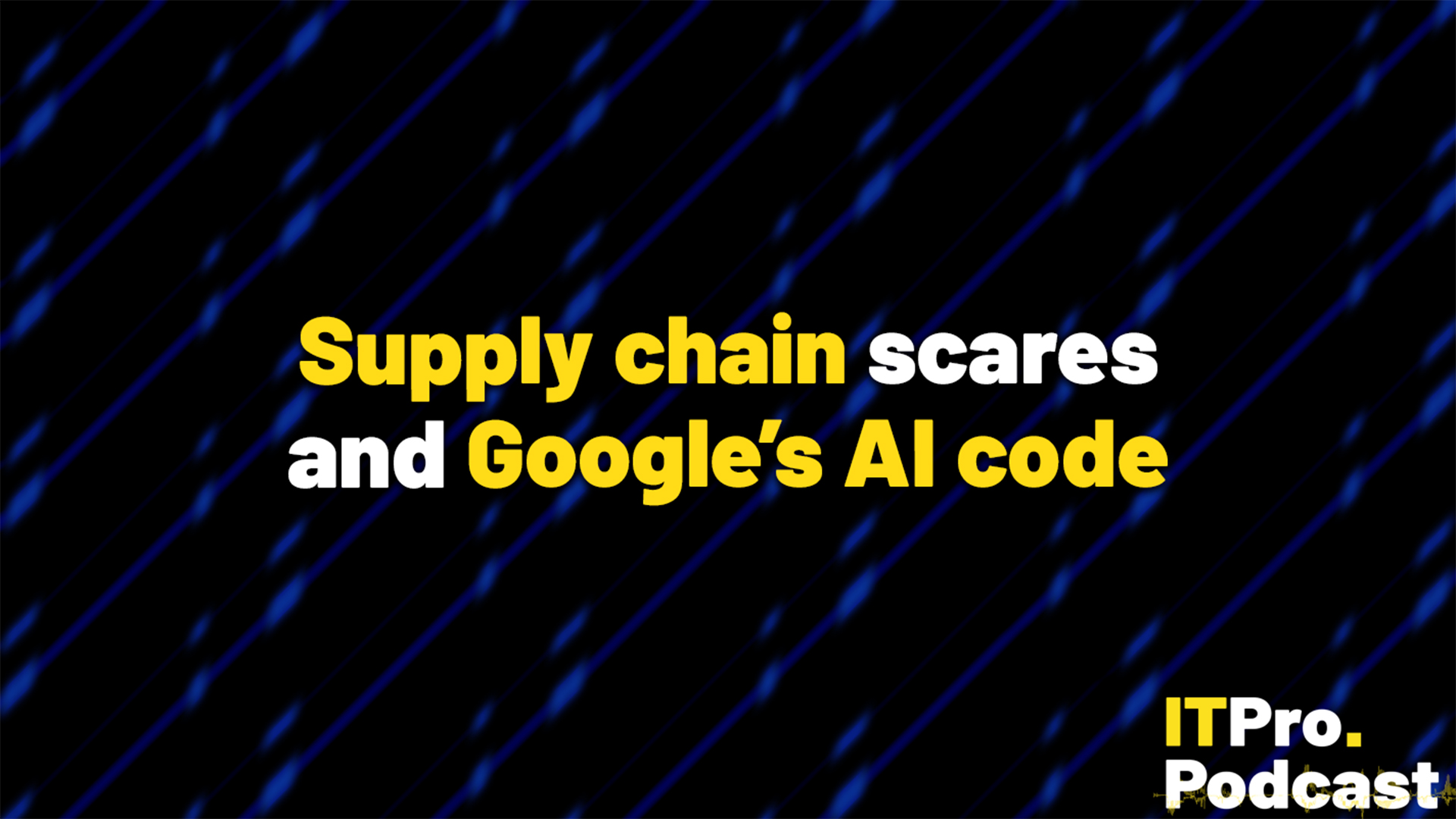 Supply chain scares and Google’s AI code
Supply chain scares and Google’s AI codeITPro Podcast As the ransomware attack on Blue Yonder disrupts a wide range of firms, Google moves to lead by example on internal AI code
By Rory Bathgate
-
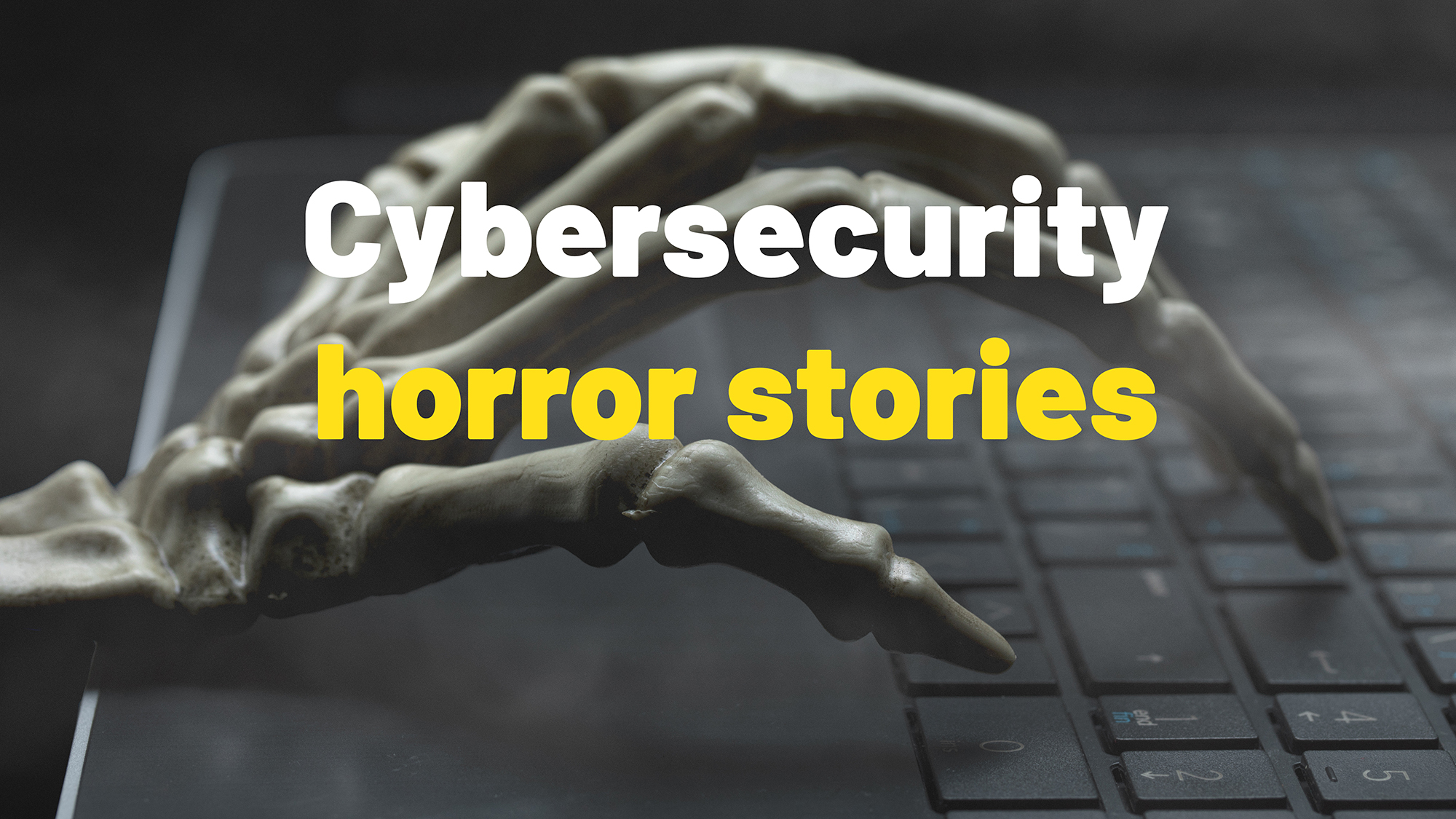 Halloween special: Cybersecurity horror stories
Halloween special: Cybersecurity horror storiesPodcast Join us for three terrifying tales sure to chill any IT professional to the core
By Jane McCallion
-
 Securing your business with education and training
Securing your business with education and trainingITPro Podcast Keeping your workforce updated on the latest threats requires a cohesive cyber skills strategy
By ITPro
-
 Cracking open insider threats
Cracking open insider threatsITPro Podcast Leaders need to perform strict identity measures on would-be hires – and ensure employees who leave have access promptly removed
By Rory Bathgate
-
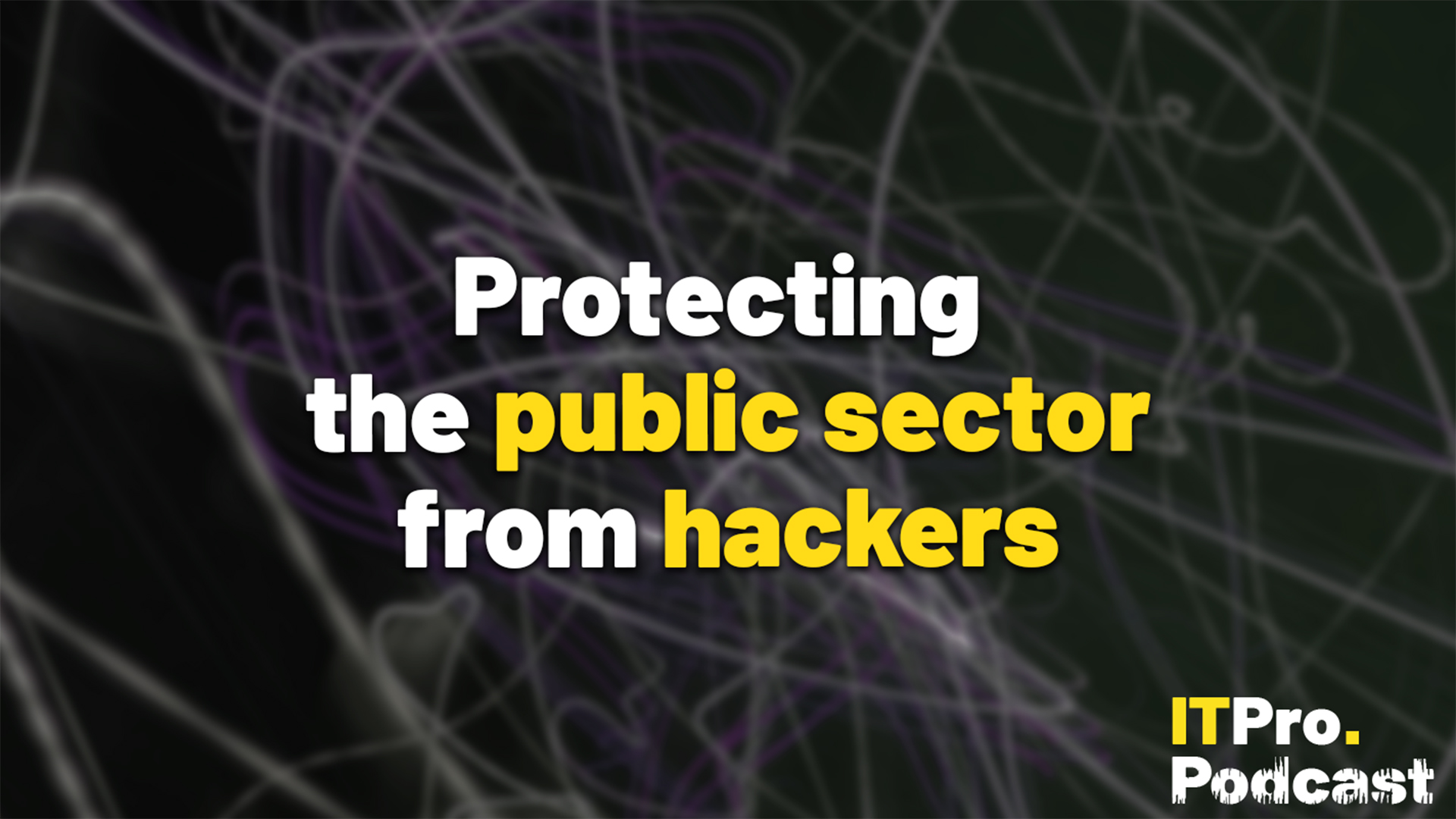 Protecting the public sector from hackers
Protecting the public sector from hackersITPro Podcast With the public sector facing increasingly sophisticated threat actors, leaders need centralized security plans and better communication
By Rory Bathgate
-
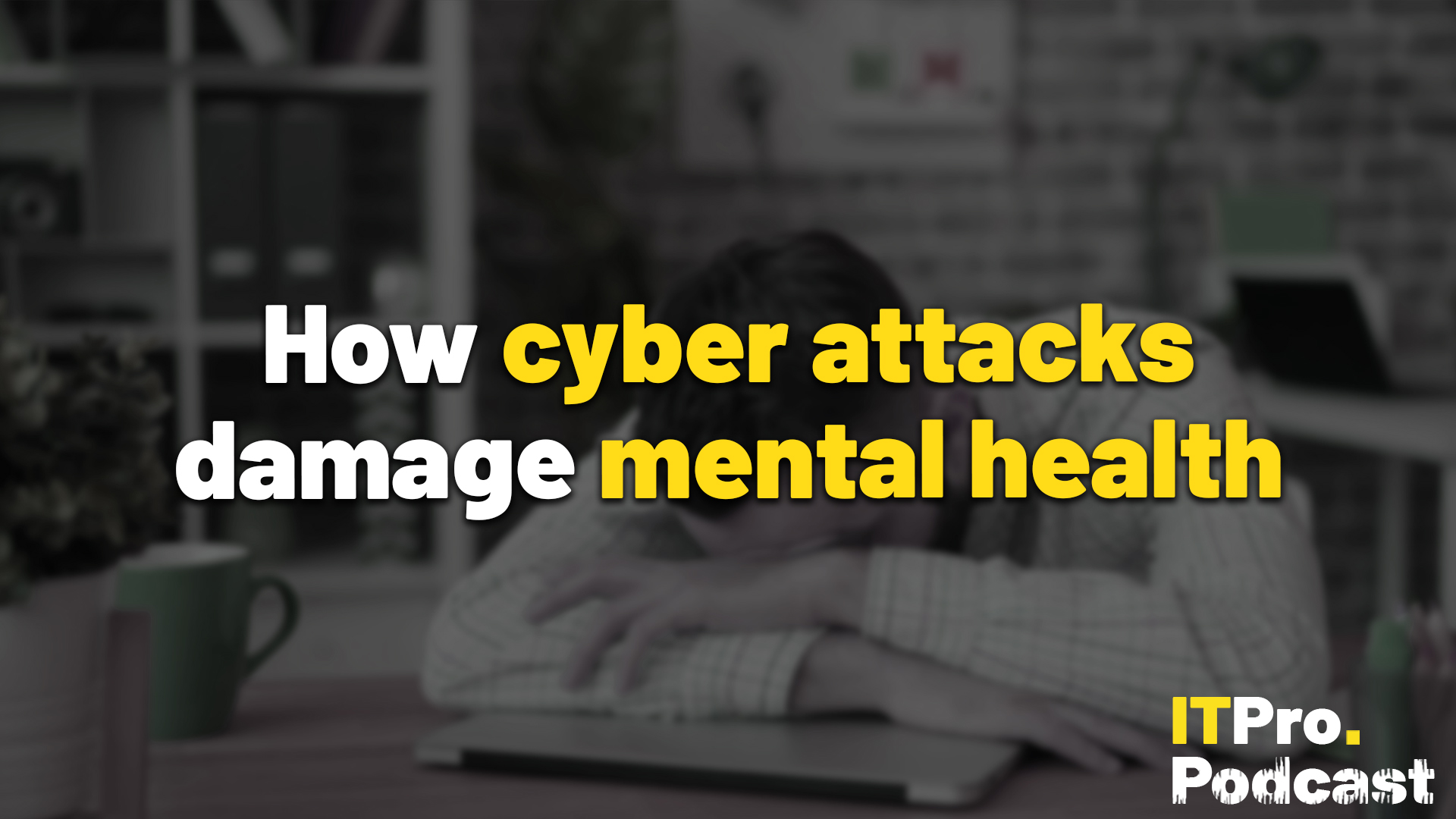 How cyber attacks damage mental health
How cyber attacks damage mental healthITPro Podcast As staff struggle to cope in the immediate aftermath of a cyber incident, leaders must do more to foster a culture of support
By Rory Bathgate
-
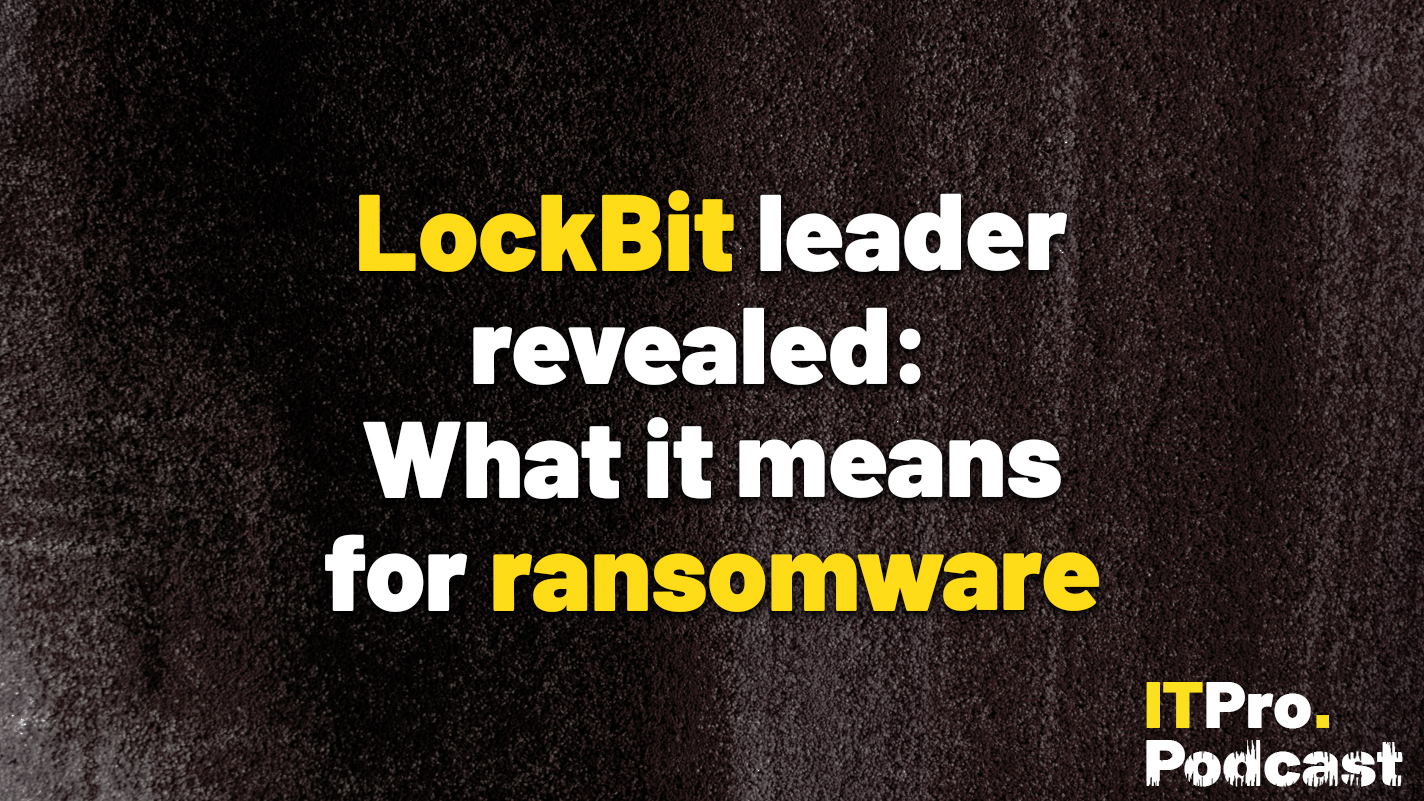 LockBit leader revealed: What it means for ransomware
LockBit leader revealed: What it means for ransomwareITPro Podcast With LockBit's founder having been unveiled publicly and with international law enforcement still digging into detailed attack stats, the group is on high alert
By Rory Bathgate
-
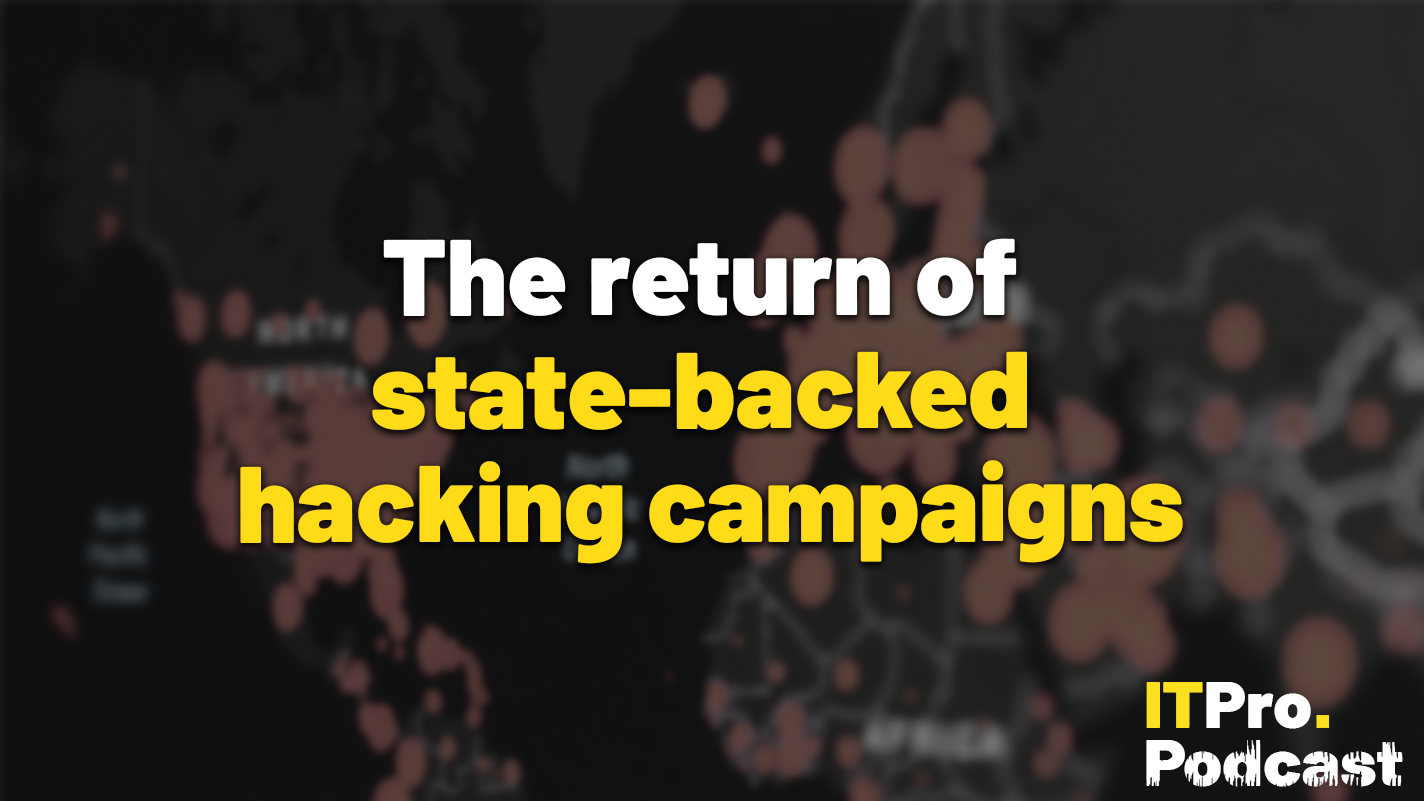 March rundown: The return of state-backed hacking campaigns
March rundown: The return of state-backed hacking campaignsITPro Podcast A major attack on the electoral commission raised concerns for the security capabilities of public and private organizations
By Rory Bathgate